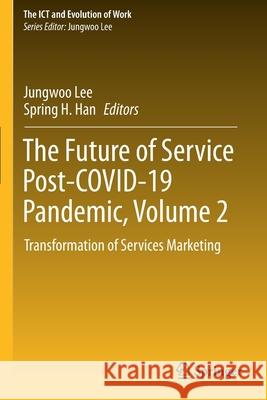The Future of Service Post-Covid-19 Pandemic, Volume 2: Transformation of Services Marketing » książka
topmenu
The Future of Service Post-Covid-19 Pandemic, Volume 2: Transformation of Services Marketing
ISBN-13: 9789813341357 / Angielski / Miękka / 2022 / 274 str.
The Future of Service Post-Covid-19 Pandemic, Volume 2: Transformation of Services Marketing
ISBN-13: 9789813341357 / Angielski / Miękka / 2022 / 274 str.
cena 403,47 zł
(netto: 384,26 VAT: 5%)
Najniższa cena z 30 dni: 385,52 zł
(netto: 384,26 VAT: 5%)
Najniższa cena z 30 dni: 385,52 zł
Termin realizacji zamówienia:
ok. 22 dni roboczych
Bez gwarancji dostawy przed świętami
ok. 22 dni roboczych
Bez gwarancji dostawy przed świętami
Darmowa dostawa!
Kategorie:
Kategorie BISAC:
Wydawca:
Springer
Język:
Angielski
ISBN-13:
9789813341357
Rok wydania:
2022
Ilość stron:
274
Waga:
0.38 kg
Wymiary:
23.39 x 15.6 x 1.47
Oprawa:
Miękka
Wolumenów:
01
Dodatkowe informacje:
Wydanie ilustrowane











